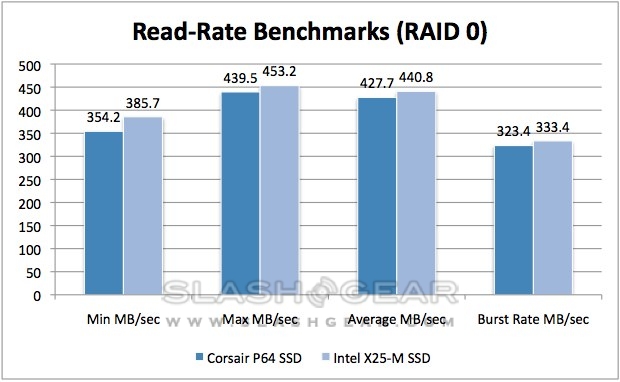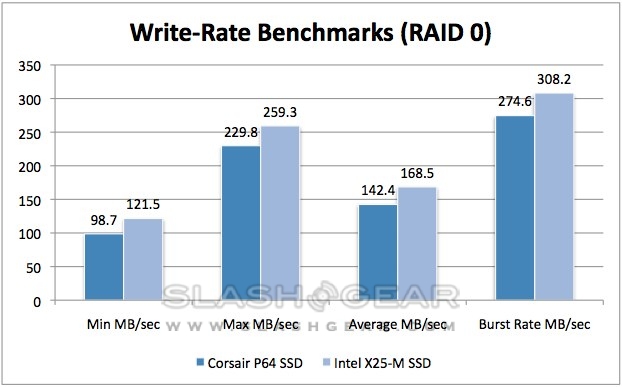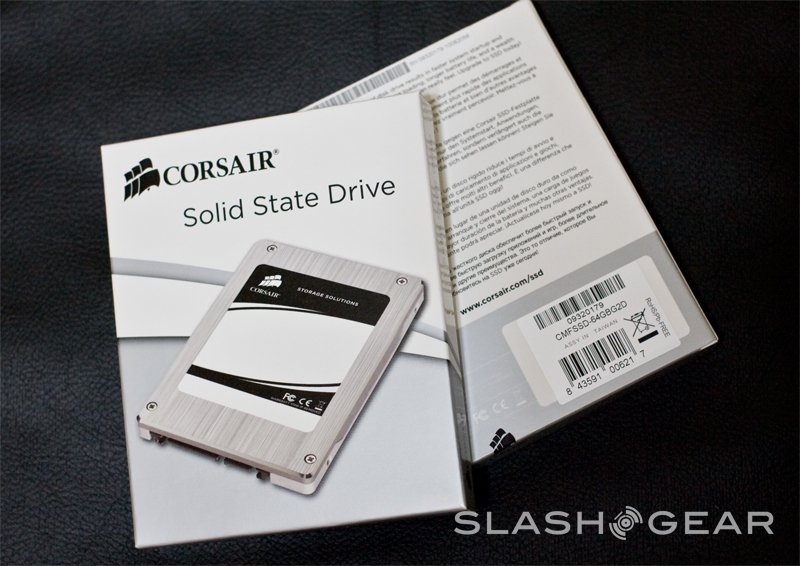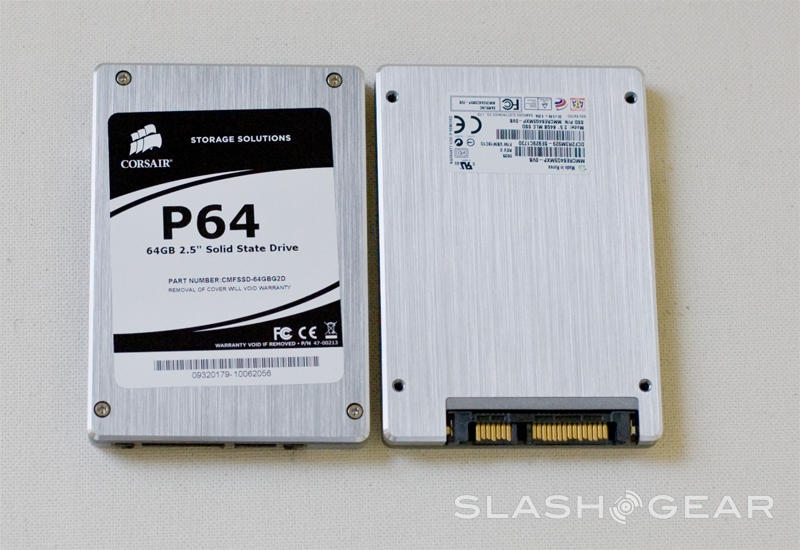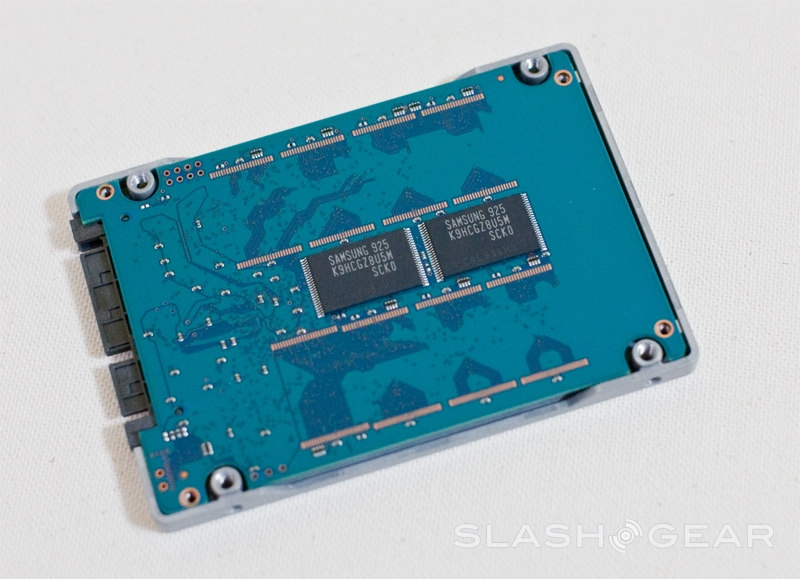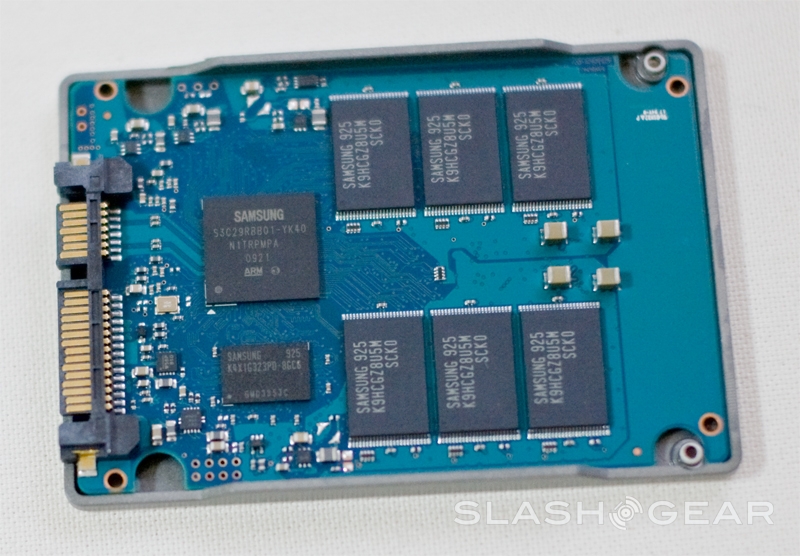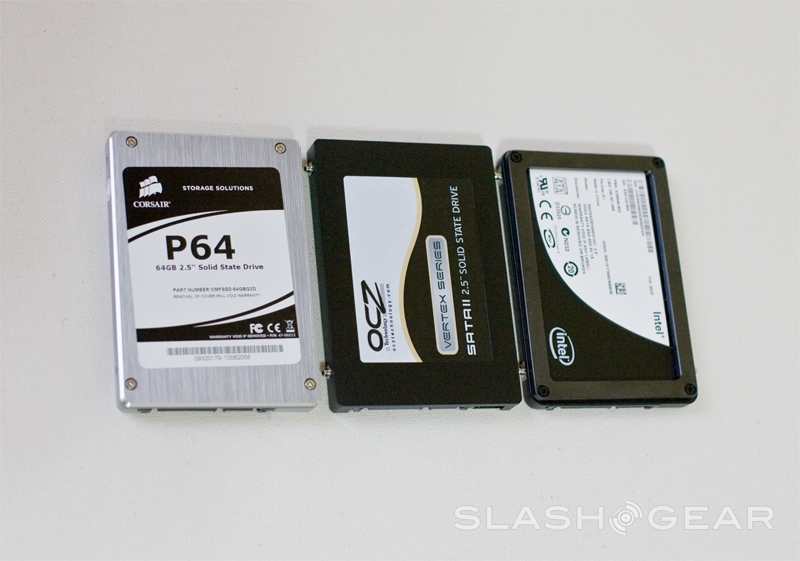Corsair P64 64GB SSD Review
Having long been the preserve of expensive ultraportables or performance intensive media processing and gaming machines, SSDs are beginning to trickle down the price ladder. There's still more GB for your dollar in a traditional platter-based hard-drive, but switching to solid state is cheaper than ever. On the SlashGear test bench today we've got Corsair's 64GB P64 CMFSSD-64GBG2D SSD.
While Corsair's brand may be writ-large across the brushed aluminum of the SSDs themselves, inside it's Samsung providing most of the magic. The P64 uses a Samsung S3C29RBB01-YK40 controller, together with eight Samsung K9HCGZ8U5M SCK0 DRAM flash chips, for the total 64GB of storage. The new Samsung controller provides garbage collection to maintain the SSD's performance. As a 2.5-inch SATA 3.0Gb/s drive the P64 will fit into most laptops and desktops (though you may need a buy adapter for the latter).
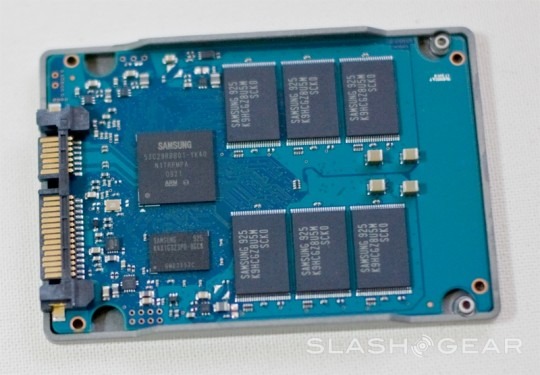
As you'd expect, installation is just as straightforward as any other hard-drive. Corsair expect buyers of the RAID kit to set up the pair in some form of array, in which case you'll either need a hardware or software controller, but you can obviously leave them as two separate drives if you prefer. With no moving parts there's no noise or vibration when the P64 is in action.
To test out the P64's performance, we set up pair of drives in a RAID 0 array in our test machine and compared it to the same machine using a pair of Intel X25-M 80GB SSDs. Our test machine has dual 2.93GHz quad-core Intel Xeon CPUs, with 6GB of DDR3 memory, NVIDIA Quadro FX1800 graphics and an Areca 1680ix-12 PCI-e RAID controller; it's running Windows Vista 64-bit, and we used HDTune Pro to measure read and write speeds.
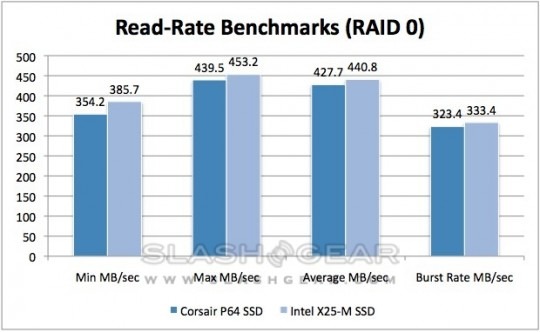
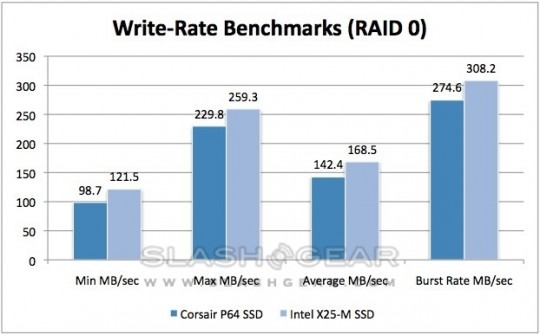
As you can see from the HDTune Pro results, the Intel SSD outperformed the Corsair SSD in every category. Read rates for the P64 ranged from 354.2 MB/sec to 439.5 MB/sec, with an average of 427.7 MB/sec, while write rates ranged from 98.7 MB/sec to 229.8 MB/sec, with an average of 142.4 MB/sec. Meanwhile the X25-M showed 440.8 MB/sec average read rates and 168.5 MB/sec average write rates.
However, the Corsair drive is also significantly cheaper than Intel's impressive SSD. Right now, you can find a single P64 64GB for $199.99, whereas a single X25-M 80GB comes in at around $329.99. Although the Intel drive gets you more capacity you're still paying an extra dollar per gigabyte; for many users the more affordable Corsair will hit a price/performance sweet spot. 64GB may not be sufficient to store all of your data, especially if you've a heavy collection of media files, but as a primary drive for your OS and applications it could deliver a decent speed boost for running software.
What we're seeing, then, is the next phase in SSD adoption: the so-called mainstreaming of solid-state drives as they move out of the expensive peripheries of use and into the grasp of general users. $200 is still a significant amount to spend on storage, especially when the same amount will get you a 2TB traditional HDD, and we would still point system admins toward the Intel drive if they've heavy-duty real-time backup to be done, but balance price and performance and you've got an excellent consumer-centric drive.

